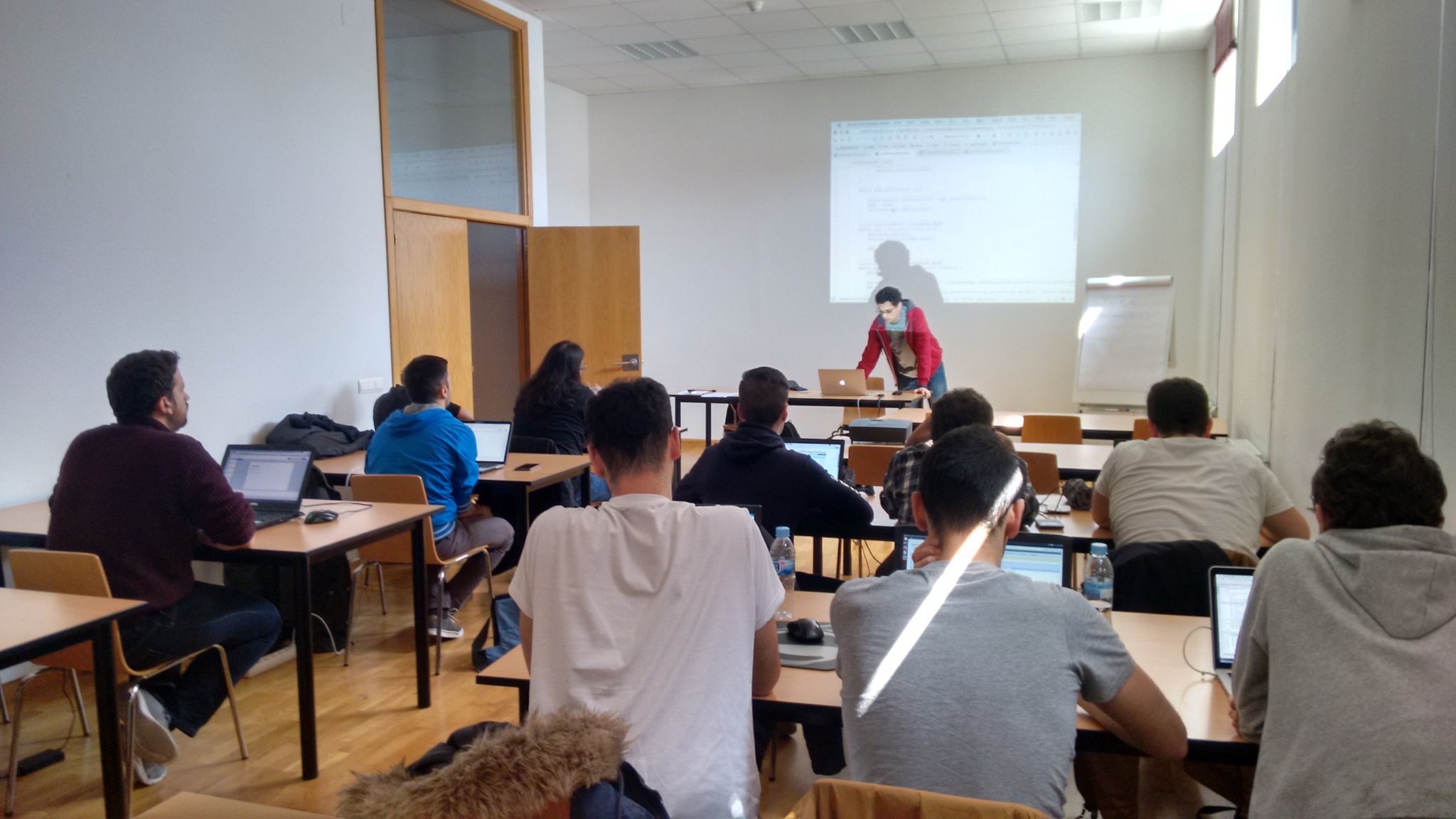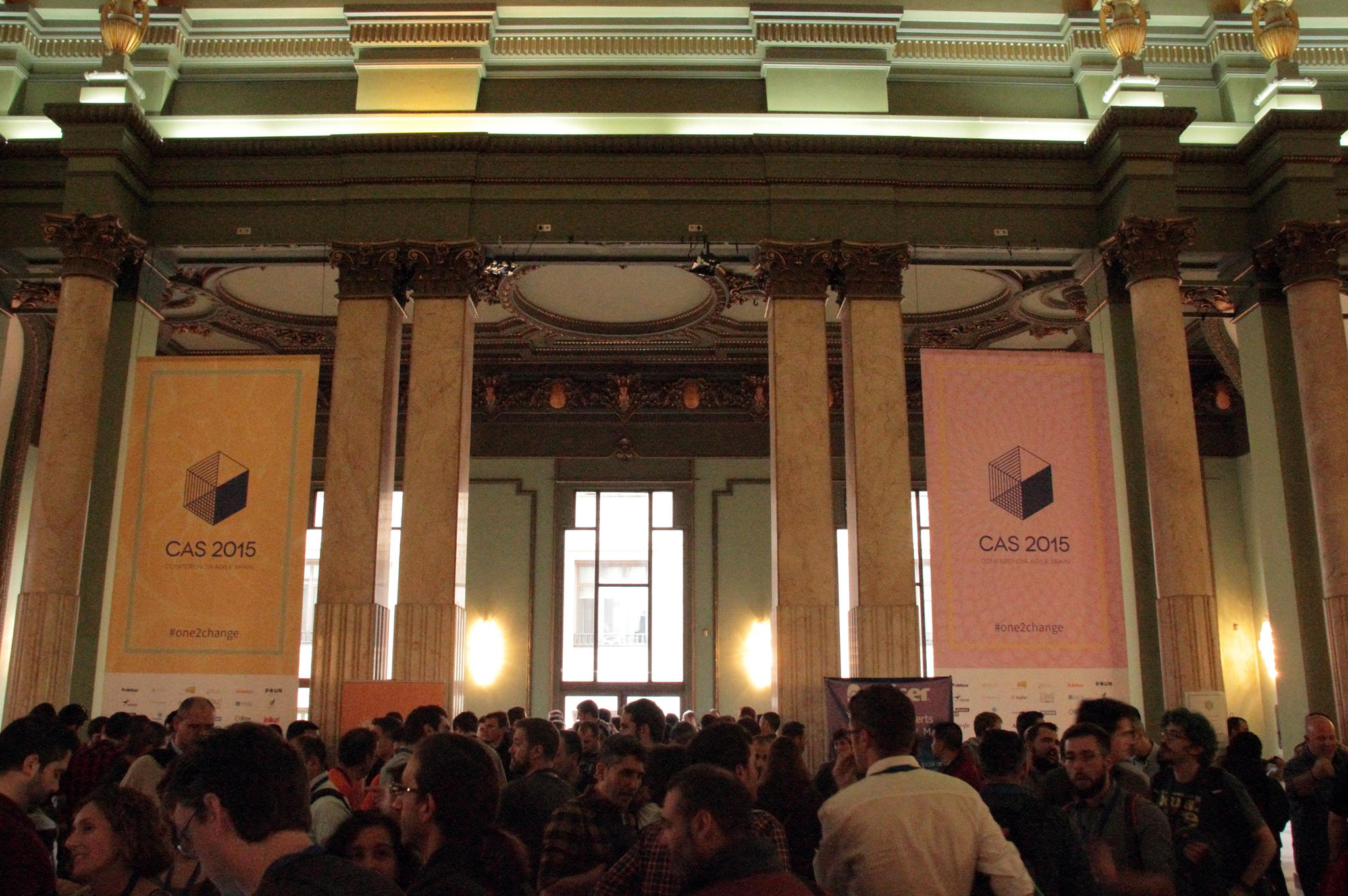Android @burgos 3
Third edition of my Android workshop in Burgos, 3 days, 19 hours… slides available here.
Worst edition so far :’(
We considered canceling it due to low attendance and in the end, I gave the workshop split on 3 days (9!, 5 and 5 hours). 9 hours is definitely too much for an introductory course about Android but we didn’t have more options with Holy Easter coming soon and other compromises.
Only 11 people attended and it should have been easier than other editions but I felt I didn’t explain myself as well as other occasions and the attendees couldn’t keep up with the rhythm of the course.
I’ve received very little feedback about the lessons (just 1 answer in the form) and no projects to review as other editions. That’s definitely a very bad signal. I’ll try to insist in one email… but I’m less than hopeful.
Things I would do differently the next time (if there is one):
- I would start with a basic Java introductory lesson for people who don’t know Java or know very little programming at all. At least to set a basic minimum for the workshop. An IDE lesson would be great too.
- Do a daily with the question, “what have you learned today?” instead of the brief summary I do at the beginning of the next session.
- Ask each one what does he expects of the course. If someone wants to do a real app, insist on sharing the repository.
- Force them to upload the exercises to github and review them between lessons.
- Think in ways of doing the course more practical but without the feeling I had in this edition, that I was just stalling the course because no one was doing the exercises. It’s possible the good solution is less content.
I think that the metric of success in a workshop is how many people are pursuing real projects with that technology. I do know that some people attend courses just to know the possibilities of the technology and have a 10.000 feet view on how to do things.
But it’s impossible that no one has a direct interest in practicing the technology. With that metric in mind, I’m afraid this edition has been a profound failure.
Any ideas?
– I wrote this before receiving the feedback the attendees filled on paper after finishing the course. Way more effective (6 responses). It’s worse than I expected :’(
Two people have voted with 8’s and even some 10’s, 3 with 5’s and 6’s and there is one person that has voted with a 5 and a 6 in utility and objectives but two 2’s in speaker and documentation (I suppose because one property of that field was “easily comprehensible” documentation).
All the responses point out that I covered too many topics and that I should have spent more time on the basics.
I definitely should have spent more time in the first session doing exercises with basic screens and insisting on doubts. I don’t think I made my point across, the course objective is “to learn android” and if you don’t know how to do something I’m failing on that and I have to stop and explain it.
I should have checked the exercises they were doing, even when I felt like that I was stalling the course. I wasn’t, I should have approached it with a “no children left behind” policy, ignoring those who already knew the topic (those 2 who voted with 8’s).
I should have checked and explained topics among classes to those who didn’t know how to program in Java. I suggested a hangout but no one came.
I have to state the specific objective of each lesson (instead of topics to cover). The objectives are learning-oriented, it doesn’t matter if it takes too much time, the final objective is to learn something.
Let’s be honest, feedback hurts, a lot. I can’t stop thinking about it. After a bad talk or a bad workshop I’m stuck on an endless cycle, checking reviews, social networks, looking for comments, and reading again and again the answers.
I hate “sugar coated” feedback. I don’t like, and I also understand, when friends say that your talk was fine or just Ok. I always request destructive feedback, I want to know what went wrong and where I can improve. But oh boy how it hurts to know it was awful, it always feels as if they are attacking me, how I am as a person, in this case, a failure. I do know that I have to work on it.
If I have to point to one lesson that I want to follow on next courses is this one:
"Bad feedback hurts, specially if you don’t receive it until
the end when you can’t react -> pursue small feedback cycles"
I had a feedback form with just 1 answer (a 9/10) until the last lesson. But it wasn’t representing the feeling of most of the attendees (the silent majority that didn’t have any doubts).
I should have, actively, looked for more feedback. That way instead of 3 days full of, useless, content I would have focused on the most important part of the course: to learn the basics.


